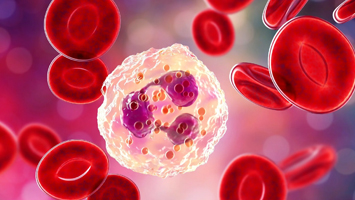
Infection, Neutropenia and Sepsis
Patients undergoing treatment for blood cancers are at a higher risk of infections due to weakened immunity. A key factor is neutropenia, a condition where neutrophils (a type of white blood cell that fights infections) drop to dangerously low levels. In severe cases, infections can progress rapidly and lead to sepsis — a life-threatening complication that requires urgent medical attention.
Why It Happens
- Chemotherapy and radiation lower white blood cell counts.
- Stem cell or bone marrow transplant recovery phase causes temporary immune suppression.
- Blood cancer itself disrupts normal immune function.
- Use of central lines or catheters can introduce bacteria into the bloodstream.
Signs of Neutropenia
- Frequent or unusual infections.
- Fever without obvious cause (often the first sign).
- Sores in the mouth, gums, or throat.
- Skin abscesses or delayed wound healing.
Recognising Sepsis
- High fever, chills, or shivering.
- Rapid breathing or difficulty breathing.
- Confusion, dizziness, or altered mental state.
- Low blood pressure, rapid heart rate, or extreme weakness.
- Sepsis is a medical emergency — immediate hospital care is required.
Prevention Strategies
- Maintain strict hand hygiene and personal cleanliness.
- Avoid crowded places and contact with sick individuals.
- Follow food safety practices to prevent infections from raw or undercooked food.
- Stay up to date on vaccinations (as advised by your doctor).
- Use masks or protective measures during vulnerable periods.
Medical Management
- Growth factor injections (e.g., G-CSF) to boost white cell production.
- Prophylactic antibiotics or antifungals for high-risk patients.
- Immediate hospitalisation and IV antibiotics for febrile neutropenia or sepsis.
- Close monitoring in an ICU for severe sepsis cases.
